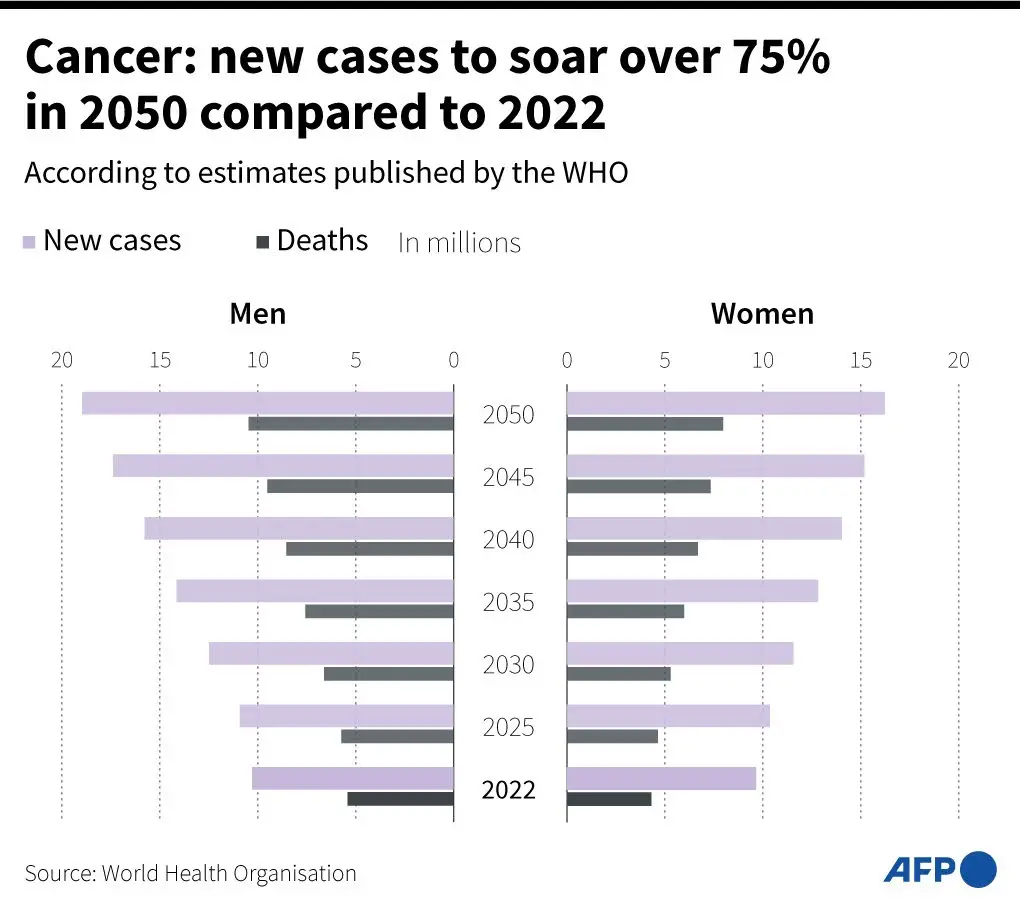
Deadly fear
Jamaicans putting their lives at risk because they are scared to do early screening
MONTEGO BAY, St James — The fear of discovering that they have a major medical issue is causing scores of Jamaicans to shy away from screening whic h could save their lives.
That’s according to chief executive officer (CEO) of National Health Fund (NHF) Everton Anderson, who was speaking at the launch of the 2024 Breast Cancer Awareness 5K Run/Walk/Wheelchair event which is being put on by the Kiwanis Club of Providence Montego Bay.
“There are still people who are deadly afraid of screening, deadly afraid. In fact, we’ve had people who actually know that something is wrong and they deliberately choose to deny that something is wrong,” Anderson told the gathering at Sea Gardens Beach Club on Thursday.
“There are people who have myths about what the mammogram will do and we have to address some of those fears,” added Anderson.
In Jamaica, breast cancer is one of the leading cause of of cancer-related deaths among women with prostate cancer for men and Anderson argued that it is important to overcome the fear and get screened.
“I know the females are fearful of the doctor but it is males, we are probably 20 or 30 times more fearful and that is something we have to address,” said Anderson.
He added: “Four weeks ago a friend of mine called me, a male, and he told me of an unfortunate incident he had. The reality is that he had not been to the doctor in maybe 20 years”.
Anderson said that, in his opinion, this fear is something that should be considered as a risk factor in dealing with ailments such as cancer.
According to Anderson, with screening, it can mean that individuals face less issues when it comes to funding care if something is found to exist.
“A single case of cancer can cost anywhere between $2 million, that’s a low figure, and up to $25 million. In fact, we’ve had some patients who reach up to over $30 million in costs,” he disclosed.
Citing a medical journal, Anderson highlighted the significance of making screening a priority.
“There is a PubMed article recently by LP Garvey and others and what it says is that the mean annual costs are significantly higher among persons diagnosed at a later stage compared to early stages cancer. The steeper increase in cumulative costs were seen among those diagnosed in stage four and above,” he lamented.
“The simple fact then is that early detection enables more efficient treatment and reduces health-care costs,” added Anderson as he pointed out that the NHF is playing its part in trying to deal with those issues as best as possible.
“The NHF cards, which started in 2003, we started with 13 conditions, we’re now covering 22 conditions and breast cancer and prostate cancer have been on the card from day one,” he highlighted.
“The coverage for that is about 70 per cent of cost. We have also added colorectal cancer, lung cancer and multiple myeloma,” Anderson added.
Cancer patients, who benefit from the NHF, amounts to just about 36,000 with about 32 per cent being enrolled for breast cancer.
“There is a significant claim when persons swipe the card and we are spending about $12,000 per breast cancer patient each time they use at the pharmacy,” said Anderson.
He pointed out cancer medication accounts for a huge chunk of the NHF’s $10-billion budget.
“Last year, we spent $1.31 billion just for cancer drugs,” Anderson pointed out.
“In 2022 the cancer statistics from Global Cancer Observatory identified 7,500 new cancer cases in Jamaica, 1,327 of that number were breast cancer patients,” added Anderson.























